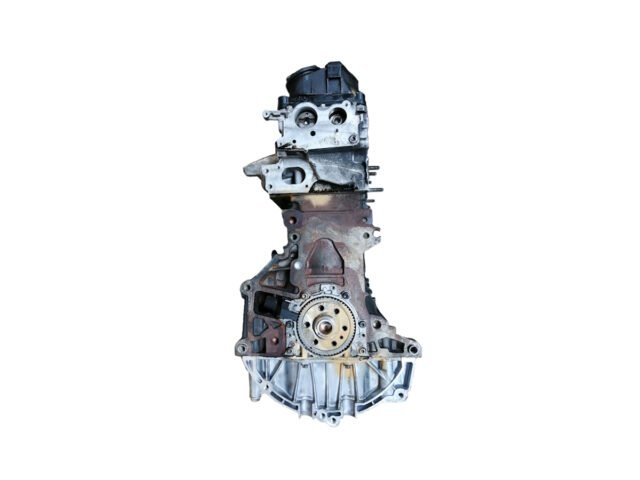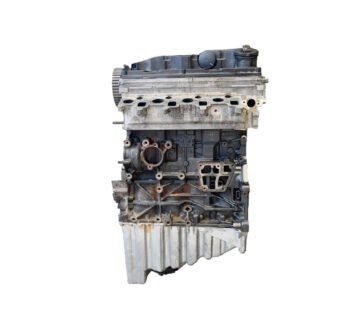Explore the most effective Deals on Amarok Engine for Sale-- High Quality and Efficiency Assured
Crucial Considerations and Tips for Choosing the Right Engine for Your Needs
Picking the ideal engine is a diverse decision that needs careful factor to consider of different elements to ensure optimum performance for your particular demands. The ins and outs of engine selection expand past these fundamentals, triggering a closer examination of essential components that can eventually affect your complete satisfaction and success.
Determine Your Purpose
Establishing your objective is a critical initial step in selecting the appropriate engine for your requirements. Comprehending the particular application you have in mind will guide your decision-making process and ensure that you choose an engine that aligns with your functional demands. Whether you require an engine for an industrial lorry, commercial equipment, or an entertainment task, each situation demands different efficiency features and capabilities.
Think about the environment in which the engine will operate. Will it go through hefty lots, severe temperatures, or prolonged use? Evaluating these aspects will certainly help you identify the required power outcome, gas performance, and resilience required to meet your objectives.
Furthermore, think of the long-lasting implications of your selection. Budget constraints, maintenance requirements, and availability of parts are necessary factors to consider that will certainly influence your total complete satisfaction and functional performance.
Ultimately, verbalizing your objective will enhance the selection procedure and encourage you to make an informed choice. By plainly specifying your objectives, you can evaluate prospective engines extra properly and choose one that not only meets your existing demands yet likewise supports your future objectives.
Evaluate Engine Requirements
When you have clearly expressed your function, the next action is to examine engine specs. This process entails a comprehensive examination of various technological details that can considerably influence efficiency and suitability for your intended usage.
Begin by examining the engine's horsepower and torque ratings. Horse power is critical for figuring out the engine's capability to carry out work, while torque is crucial for recognizing just how well it can take care of hefty tons or velocity. Additionally, think about the engine variation, as it commonly associates with power output and efficiency.
Following, examine the engine typeâEUR" whether it is a fuel, diesel, or alternate gas engineâEUR" as each type has unique characteristics and applications. Focus on the engine's setup (e.g., inline, V-type), as this can affect dimension, weight, and overall performance.
Another crucial aspect is the engine's air conditioning system, which can influence integrity and maintenance requirements. Review the supplier's reputation and service warranty offerings, as these can supply insights into long-term performance and support. Completely evaluating these requirements will certainly assist ensure that you select an engine that lines up with your operational goals and specific needs.
Consider Gas Efficiency
Gas effectiveness is an essential aspect to take into consideration when picking an engine, as it directly impacts functional prices and ecological sustainability. An engine's gas effectiveness is usually measured in miles per gallon (MPG) for lorries or in details gas consumption (SFC) for airplane and aquatic engines. Higher gas efficiency not only lowers the amount of gas consumed but additionally reduces greenhouse gas emissions, making it a liable choice for eco-conscious customers.
When evaluating engine options, it is vital to examine the driving problems and planned usage. Engines maximized for freeway driving might exhibit better fuel performance contrasted to those created for stop-and-go traffic. Additionally, consider the engine's technology, such as turbocharging or crossbreed systems, which can dramatically improve gas performance.

Assess Maintenance Requirements

Some engines may require even more frequent oil changes, filter substitutes, or specialized maintenance, which can influence your operational downtime. Engines with extensive popularity generally have better components availability, lowering lead times throughout fixings.
One more crucial facet is the technical competence required for upkeep. Some engines might necessitate customized training for professionals, which might limit your alternatives for provider. Examine whether the engine's layout enables for simple accessibility to components typically requiring upkeep, as this can significantly affect labor expenses.
Budget Your Investment
Understanding maintenance needs is simply one element of picking the ideal engine; economic factors to consider play a similarly crucial role (amarok engine for sale). Establishing a clear spending plan is crucial, as it influences not just the first acquisition cost however also long-term operational prices
When budgeting, consider both the continuous costs and upfront prices such as fuel efficiency, upkeep, and potential fixings. An apparently economical engine might incur greater expenses in time as a result of bad fuel economic situation or regular maintenance demands. Additionally, evaluate the Home Page schedule and expense of spare components, in addition to the guarantees offered by makers, which can supply monetary defense versus unexpected expenditures.
It is likewise smart to factor in possible financing alternatives or leasing arrangements, which might minimize prompt monetary problems. Balance your need for sophisticated features with your budget plan restrictions, ensuring that you invest in an engine that meets your efficiency requires without endangering monetary stability.
Inevitably, a well-shaped budget plan will certainly empower you to make informed choices, aligning your engine option with both your monetary capacities and operational needs, resulting in an extra sustainable financial investment over time.

Conclusion
To conclude, picking the proper engine demands a complete understanding of certain requirements and applications. Cautious evaluation of engine requirements, gas efficiency, and maintenance requirements is important for informed decision-making. In addition, developing a detailed budget makes sure that both preliminary and ongoing expenses are manageable. By adhering to these considerations, individuals and companies can make a sustainable investment that aligns with their functional goals and efficiency assumptions, ultimately improving overall effectiveness and performance.
Fuel performance is an important element to take into consideration when picking an engine, as it directly impacts operational prices and environmental sustainability. An engine's look at this site gas effectiveness is typically determined in miles per gallon (MPG) for vehicles or in certain gas usage (SFC) for airplane and marine engines. Diesel engines normally give better fuel performance than fuel engines. Inevitably, selecting an engine with a solid focus on fuel performance can lead to significant long-lasting financial savings and contribute favorably to environmental efforts. Mindful analysis of engine requirements, gas efficiency, and upkeep needs is vital for notified decision-making.